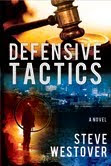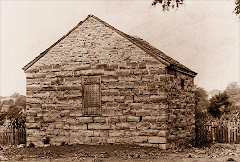
When Samuel the Lamanite was commanded to preach to the Nephites he was not particularly thrilled but he obeyed even though he knew it was a challenging assignment. He preached for a while; prophesied and called the people to repent of their wicked ways but the Nephites became angry and cast Samuel out of their city. As Samuel left the city he was prompted to return and continue to prophesy and preach repentance. Again, he was obedient. He returned. He prophesied of signs and wonders that would be seen in the heavens prior to the birth of Jesus. He taught the people that they needed to repent and exercise faith in Jesus, but the people were angry and sought to destroy him.
Samuel climbed upon a high wall and prophesied. The wicked people, offended by his calls to repentance, attempted to take hold of him. They shot arrows and flung rocks but they were unable to harm the servant of the Lord. After he completed his teaching, he climbed down from the wall and fled. He was never heard from among the Nephites again.
I have always been drawn to this story and I love the picture. As a kid the picture of Samuel on the wall captured my imagination and brought to life the heroism of Samuel. But what’s the point? There has to be more than just a good story and a cool picture. Is the message, “don’t stone the prophets?” Maybe, but aren’t most people who read the Book of Mormon already disinclined to stone a prophet? I always assumed so. This is probably obvious to everyone, but it occurs to me that while we wouldn’t physically shoot arrows or sling stones at the prophet attempting to cause him physical harm, we do sometimes shoot verbal arrows and try to damage the reputation or stature of the prophets, or other called priesthood leaders who may call us to repentance?
I think of the arrows of criticism that Pres. Packer faced after his October 2010 General Conference address. Much of this criticism came from members within the church. Pres. Packer simply called for moral cleanliness and repentance, yet many took great offence to his talk. They attempted to damage his reputation and discredit his truthful words. The guilty took the truth to be hard. They cast arrows and stones at Pres. Packer. To this example, we may say, “I would never do that,” and I hope we wouldn’t, but do we sometimes participate in similar behavior?
Often times we will listen to the prophets, a Stake President or a Bishop give counsel and we think to ourselves, “What a great idea. Gee, I really hope (insert name here) is listening.” We deflect the call to repentance as merely a good idea, or as being for someone else. But when the call comes directly to us through a bold talk or a personal interview, we are offended. We become defensive and cold. We seek to justify ourselves and discredit the priesthood leader. We may say to ourselves “He has no right to ask that question,” or “he is handling this all wrong.” “He doesn’t understand,” or “he is only a Bishop or Stake President,” just as the Nephites probably referred to Samuel as “only a Lamanite.” We may justify ourselves because of the weaknesses of our leaders, but do we realize that when we do this, we are the same as the Nephites casting stones and arrows at Samuel?
Samuel climbed upon a high wall and prophesied. The wicked people, offended by his calls to repentance, attempted to take hold of him. They shot arrows and flung rocks but they were unable to harm the servant of the Lord. After he completed his teaching, he climbed down from the wall and fled. He was never heard from among the Nephites again.
I have always been drawn to this story and I love the picture. As a kid the picture of Samuel on the wall captured my imagination and brought to life the heroism of Samuel. But what’s the point? There has to be more than just a good story and a cool picture. Is the message, “don’t stone the prophets?” Maybe, but aren’t most people who read the Book of Mormon already disinclined to stone a prophet? I always assumed so. This is probably obvious to everyone, but it occurs to me that while we wouldn’t physically shoot arrows or sling stones at the prophet attempting to cause him physical harm, we do sometimes shoot verbal arrows and try to damage the reputation or stature of the prophets, or other called priesthood leaders who may call us to repentance?
I think of the arrows of criticism that Pres. Packer faced after his October 2010 General Conference address. Much of this criticism came from members within the church. Pres. Packer simply called for moral cleanliness and repentance, yet many took great offence to his talk. They attempted to damage his reputation and discredit his truthful words. The guilty took the truth to be hard. They cast arrows and stones at Pres. Packer. To this example, we may say, “I would never do that,” and I hope we wouldn’t, but do we sometimes participate in similar behavior?
Often times we will listen to the prophets, a Stake President or a Bishop give counsel and we think to ourselves, “What a great idea. Gee, I really hope (insert name here) is listening.” We deflect the call to repentance as merely a good idea, or as being for someone else. But when the call comes directly to us through a bold talk or a personal interview, we are offended. We become defensive and cold. We seek to justify ourselves and discredit the priesthood leader. We may say to ourselves “He has no right to ask that question,” or “he is handling this all wrong.” “He doesn’t understand,” or “he is only a Bishop or Stake President,” just as the Nephites probably referred to Samuel as “only a Lamanite.” We may justify ourselves because of the weaknesses of our leaders, but do we realize that when we do this, we are the same as the Nephites casting stones and arrows at Samuel?
No matter how many arrows we shoot or stones we sling, we will not damage the truth that is spoken by those called of God. If we take the truth to be hard, the real question we should be asking ourselves is “Why?” The only one we hurt, by failing to heed the truth spoken by prophets and priesthood leaders, is ourselves.

























No comments:
Post a Comment